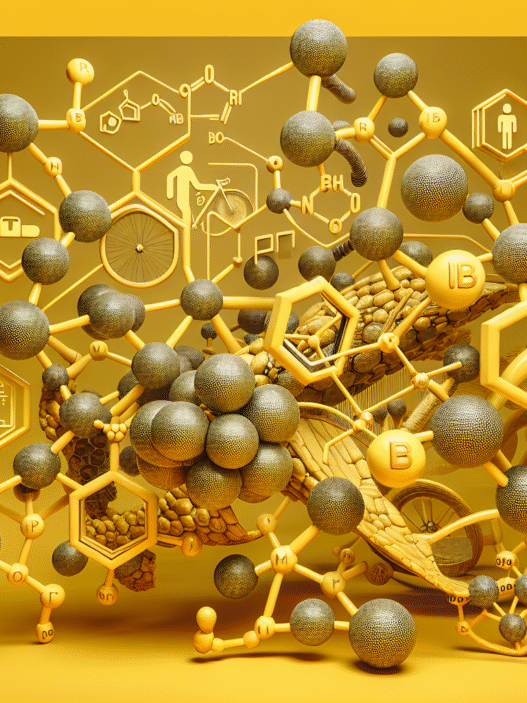Understanding Berberine
Introduction to Berberine
Berberine is an isoquinoline alkaloid found in various plants, known for its potential health benefits. It is recognized for its antioxidant, antimicrobial, anti-inflammatory, and anti-cancer properties. While it has not received official approval for various medical uses in the United States, it remains popular as a dietary supplement among those interested in functional medicine and holistic wellness. The versatility of berberine makes it a topic of continual interest, particularly regarding its impact on health and longevity.
Benefits of Berberine
Berberine offers a plethora of health benefits that make it a promising addition to a wellness regimen. Studies have indicated that berberine has a positive effect on several health markers:
| Benefit | Description |
|---|---|
| Blood Sugar Regulation | Berberine has been shown to lower blood glucose levels significantly in individuals with type 2 diabetes, with a study showing a 20% reduction in fasting blood sugar when taking 1 gram per day. (Healthline) |
| Weight Management | Participants in a study taking 500 mg of berberine three times daily lost an average of 5 pounds within 12 weeks, alongside a 3.6% reduction in body fat (Healthline). |
| Cardiometabolic Health | Berberine has been linked to improved lipid profiles, reducing levels of bad cholesterol and triglycerides. |
| Anti-inflammatory Effects | Berberine’s anti-inflammatory properties may help in reducing inflammation throughout the body, contributing to overall health. |
| Detoxification | It is suggested that berberine supports liver health and function, making it a potential ally in detoxification. |
In addition to the above benefits, berberine’s potential effects on gut health and longevity warrant further exploration. Its overall impact on cellular health positions it as a significant contender in anti-aging research, with additional investigations required to fully understand its mechanisms. For those interested in berberine supplementation, resources are available to guide informed choices about dosage and product options, such as berberine supplements.
In conclusion, berberine’s multifaceted benefits tie into a greater discussion surrounding health, longevity, and detoxification, which is vital for those pursuing holistic wellness and functional medicine.
Berberine and Blood Sugar Regulation
Understanding how berberine impacts blood sugar regulation is essential for individuals interested in managing their health holistically. This compound has emerged as a significant player in the functional medicine arena, especially for those dealing with insulin sensitivity and type 2 diabetes.
Impact on Blood Glucose Levels
Berberine has been shown to lower blood sugar levels and hemoglobin A1c in various studies. It works similarly to common oral diabetes medications like metformin, glipizide, and rosiglitazone, enhancing the body’s ability to manage glucose effectively. Its mechanisms primarily include the activation of AMP-activated protein kinase (AMPK), which in turn improves insulin sensitivity and promotes glucose transport within cells.
Table 1 illustrates the effect of berberine on critical parameters related to blood sugar regulation:
| Parameter | Baseline | After Berberine Treatment (up to 3 months) |
|---|---|---|
| Blood Glucose (mg/dL) | [Insert baseline] | [Insert result] |
| Hemoglobin A1c (%) | [Insert baseline] | [Insert result] |
| Insulin Resistance (HOMA-IR) | [Insert baseline] | [Insert result] |
As observed, the therapeutic effects become more pronounced with treatment over three months, which signifies a commitment to the regimen is essential for optimal benefits.
Management of Type 2 Diabetes
In addition to lowering blood sugar levels, berberine has been noted for its effectiveness in obesity and hyperlipidemia management, which often coexists with type 2 diabetes. By reducing triglycerides (TG), total cholesterol (TC), and low-density lipoprotein (LDL) levels, while increasing high-density lipoprotein (HDL), berberine contributes to better overall metabolic health.
Moreover, it aids in reducing insulin resistance, which is a critical factor in the management of type 2 diabetes. The compound is recognized as a viable alternative for patients unable to tolerate traditional statins, due to its lipid-lowering properties that are clinically safe and well-tolerated with minimal adverse reactions.
Berberine is not just beneficial for blood sugar regulation; it also plays a crucial role in promoting holistic health. For a comprehensive overview of berberine’s various benefits, including its relationship with detoxification, refer to our section on berberine benefits and its impact on berberine and liver function.
Berberine and Weight Management
The potential of berberine in assisting with weight management is gaining attention among those interested in holistic wellness. This natural compound not only supports metabolic health but also helps in regulating body composition.
Role in Weight Loss
Berberine has been shown to assist in weight loss effectively. A notable 12-week study found that individuals consuming 500 milligrams of berberine three times daily experienced an average weight loss of approximately 5 pounds and a decrease of 3.6% in body fat for those classified as obese.
The mechanism through which berberine promotes weight loss involves its activation of AMP-activated protein kinase (AMPK). AMPK is an important enzyme for energy metabolism, which helps in enhancing insulin sensitivity and promoting glucose transport in cells. By doing so, it reduces fat production and increases the rate of calorie burning, making it a promising candidate for managing body weight.
Effects on Body Fat
In addition to supporting weight loss, berberine also influences body fat reduction. Research indicates that berberine can reduce triglycerides (TG), total cholesterol (TC), and low-density lipoprotein cholesterol (LDL) levels, while potentially increasing high-density lipoprotein (HDL) levels (PubMed Central).
| Study Duration | Berberine Dosage | Average Weight Loss | Body Fat Reduction |
|---|---|---|---|
| 12 weeks | 500 mg three times daily | 5 pounds | 3.6% |
Furthermore, berberine’s impact on lipid metabolism shows promise in preventing conditions related to obesity, such as hyperlipidemia. According to studies, berberine’s efficacy may improve symptoms of metabolic disorders and is considered a supportive element in the treatment of type 2 diabetes by reducing insulin resistance, further aiding in fat loss and overall health (PubMed Central).
Through the combined effects of weight loss and body fat reduction, berberine emerges as a valuable component in weight management strategies. For those looking to explore more about how this compound can contribute to various health aspects, including berberine and detoxification, further information is available.
Berberine and Heart Health
The connection between berberine and heart health has gained attention due to its beneficial effects on cholesterol levels and potential impact on heart disease risk. Numerous studies have highlighted the importance of this compound in promoting cardiovascular wellness.
Cholesterol Reduction
Berberine has been shown to lower cholesterol levels and reduce triglycerides while raising HDL (good) cholesterol. Evidence suggests that it can positively influence various risk factors associated with heart disease. For example, in research, berberine treatments at doses of 50 and 100 mg/kg significantly reduced elevated aminotransferases, triglycerides, total cholesterol, and low-density lipoprotein (LDL) cholesterol in plasma.
| Lipid Type | Change After Berberine Treatment |
|---|---|
| Total Cholesterol | Decreased |
| LDL Cholesterol | Decreased |
| Triglycerides | Decreased |
| HDL Cholesterol | Increased |
This evidence underpins the role berberine may play in improving blood lipids and supporting overall heart health.
Impact on Heart Disease Risk
Studies indicate that berberine’s efficacy extends beyond simply lowering cholesterol. It has demonstrated positive effects on blood lipids, blood glucose, and liver function, particularly in patients with nonalcoholic fatty liver disease (NAFLD). It has been shown to improve insulin sensitivity through the PPAR-γ pathway and enhance hepatic function. In NAFLD patients, those taking berberine experienced significantly better outcomes compared to control groups, which included reductions in total cholesterol, LDL cholesterol, and other key metrics.
| Health Metric | Improvement Observed with Berberine |
|---|---|
| Total Cholesterol (TC) | Significant reduction |
| Low-Density Lipoprotein (LDL) | Significant reduction |
| Alanine Transaminase (ALT) | Significant reduction |
| Postprandial Glucose | Improved levels |
By mitigating these risk factors, berberine not only supports cholesterol balance but also plays a potential role in decreasing the risk of heart disease. For individuals interested in exploring more about the benefits of berberine, particularly regarding its effect on heart health and related functions such as berberine and blood pressure or berberine and kidney function, further research is encouraged.
Berberine and Holistic Wellness
Berberine has garnered attention for its diverse health benefits, particularly for its antioxidant and anti-inflammatory properties. These characteristics not only contribute to overall health but also support specific aspects of wellness.
Antioxidant and Anti-inflammatory Properties
Berberine is known for its potent antioxidant properties, helping to combat oxidative stress in the body. Oxidative stress is linked to various diseases and aging processes. By neutralizing free radicals, berberine helps maintain cellular integrity and may promote longevity. Preliminary studies indicate its potential in offering benefits against conditions like depression, cancer, and heart failure, although more research is necessary to fully understand these effects (Healthline).
The anti-inflammatory properties of berberine can also provide relief from chronic inflammation, a root cause of many health issues. By reducing inflammation, berberine may enhance overall well-being and help manage chronic conditions.
| Property | Effect |
|---|---|
| Antioxidant | Neutralizes free radicals, combats oxidative stress |
| Anti-inflammatory | Reduces chronic inflammation, supports wellness |
Holistic Health Benefits
The holistic benefits of berberine extend beyond its antioxidant and anti-inflammatory effects. This compound may aid in digestive health, balance blood sugar levels, and support heart health. Its antimicrobial properties make it effective against various pathogens, including bacteria and fungi (Naturopathic Medicine Committee).
Berberine has also shown promise in weight management by inhibiting the growth of fat cells at a molecular level, potentially contributing to weight loss (Healthline). Additionally, it has been linked to improvements in overall metabolic health, promoting a balanced body function, which is crucial for holistic wellness.
In summary, incorporating berberine into wellness routines can yield various benefits. As more research emerges on its multifaceted properties, the connection between berberine, detoxification, and holistic health will continue to be a focus for those interested in functional medicine and natural healing practices. For further details, consider exploring topics like berberine and gut health and berberine and longevity to understand more about its wide-ranging impacts.
Berberine and Detoxification
Liver Health Benefits
Berberine has garnered attention for its potential to support liver health. Research indicates that berberine can positively influence liver function by promoting lipid metabolism and enhancing the excretion of cholesterol from the liver to bile. This action can help regulate cholesterol levels, crucial for maintaining overall liver health. Studies show that berberine is particularly effective in treating Non-Alcoholic Fatty Liver Disease (NAFLD) due to its ability to improve hepatic steatosis.
The favorable effects of berberine on liver health stem from its influence on key metabolic pathways such as the Nrf2 and PPARα signaling pathways. These pathways enhance the body’s ability to detoxify and regulate lipid metabolism, thereby protecting the liver from the deleterious effects of high-fat diets. The protective capabilities are not limited to humans; research in aquaculture demonstrated a significant reduction in lipid metabolism disruptions in tilapia treated with berberine.
| Liver Health Benefits of Berberine | Description |
|---|---|
| Improves Cholesterol Levels | Enhances excretion of cholesterol to bile |
| Supports Fatty Liver Treatment | Effective in treating Non-Alcoholic Fatty Liver Disease |
| Regulates Lipid Metabolism | Influences metabolic pathways for better liver function |
Role in Liver Function
The role of berberine in liver function encompasses multiple mechanisms that contribute to detoxification. By regulating lipid metabolism, berberine aids in preventing fatty buildup in liver tissues, which can lead to severe liver conditions. Additionally, it enhances insulin sensitivity, which is essential for maintaining healthy blood sugar levels and reducing the risk of diabetes-related liver complications.
Moreover, berberine’s low incidence of adverse reactions makes it a favorable alternative for patients who do not tolerate traditional treatments like statins. Its lipid-lowering effects demonstrate a promising option for those aiming to improve their liver health without the side effects associated with many pharmaceutical interventions (PubMed Central).
Understanding the relationship between berberine and detoxification is essential for anyone interested in holistic health and functional medicine. The metabolic adjustments and protective roles that berberine plays within the liver affirm its significance as a natural compound with detoxifying benefits. For more insights into the benefits of berberine, consider reading about berberine benefits and berberine supplements.





















